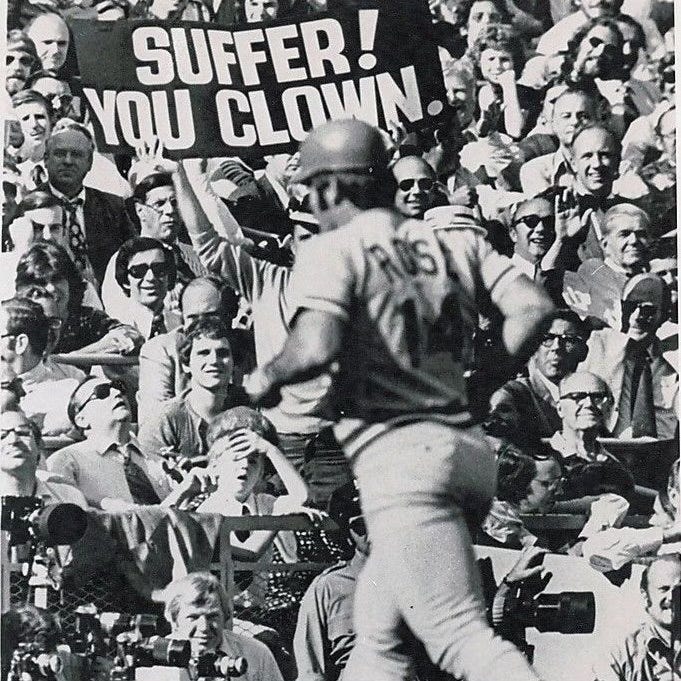There’s this moment in the Bible I can’t stop thinking about because it feels emblematic of an inherent conundrum of faith.
23 Jesus said unto him, If thou canst believe, all things are possible to him that believeth.
24 And straightway the father of the child cried out, and said with tears, Lord, I believe; help thou mine unbelief.
25 When Jesus saw that the people came running together, he rebuked the foul spirit, saying unto him, Thou dumb and deaf spirit, I charge thee, come out of him, and enter no more into him.
(Mark 9: 23-25 King James)
What is faith? A question I ask my partner while at dinner at a wonderful restaurant called Luthun. It’s a big question. I love big questions the way I love open fields. So much room for play and possibility. But really what is faith?
I don’t intend to have an answer to the question because so much of faith, I suspect, has to do with opacity. But taken to the extreme, the association of opacity (i.e. accepting at face value) with faith can cause a terrible attachment to fatalism and dogma. We have seen this in action over millennia, wars fought over an opaque belief that certain actors have been given divine fiat to engage in behaviors cruel, violent, unseemly. Safe to say, at least, that faith is a thing alloyed to something we call belief.
Faith, whether one accepts it as a concept spiritual or secular, unmoors us of the gray uncertainty common to the human experience when there is left no room for doubt, for questioning, for even despair.
Which is why I return to this passage. Jesus has been entreated by a father whose child is likely struggling with epilepsy. These seizures are characterized as the insidious work of an unclean spirit, a demonic possession that has literally seized the child’s health and quality of life.
You have to imagine the parent’s pain (and the child’s pain, of course). This father is looking for a miracle as none of the doctors or disciples have been able to help/cure his child. Enter the miracle worker, Jesus Christ, who utters one of the most confounding if/then statements of all time. If you believe, then all things are possible. In some translations, everything is possible. In other translations, anything is possible. This will become a fundamental truth in the theology and doctrine that posthumously develops around the life and teachings of Christ (and may, in fact, be a red herring in this small interaction—but more on this later).
The father replies as I imagine any desperate parent would. Yes I believe! But please help my unbelief!
And I love this. Because two things can be true. I believe anything is possible. But I’m really losing hope here. Time is a factor. Time is running out. We’re still suffering. And there’s no sign things will change for the better. In essence, the father is pleading that while he accepts Christ’s premise of miraculous possibility, he’s just not feeling it. More than that, he needs evidence that indeed all things are possible to those who believe because what worth is that premise (that promise) if in fact nothing changes, if in fact our belief amounts to tremendous disappointment. Our faith, in these instances, creates an incredible bubble of hope that may painfully pop into bathos. Which, to be fair, is a feeling every Mets fan is intimately acquainted with.
The catchphrase, Ya Gotta Believe!, is often associated with the Mets and has its origins with pitcher Tug McGraw who, in the 1973 Mets season, shouted the expression during one of the locker room meetings. The Mets, who’d started the season off slow, made it miraculously to the World Series, ultimately losing to the A’s in 7 games. Ed Kranepool cites a crucial managerial error from Yogi Berra as the cause of their eventual downfall. But maybe all that belief, that faith, which galvanized a fanbase loyal to a hard-on-its-luck New York team, brought them to the edge of glory. The journey had been an incredible realization of miraculous possibility, even if the destination proved a disappointment.
The 2024 Mets have had a similar run and, as I write this, are yet again on the precipice of another do-or-die moment in the NLCS. They’re down 3-1 against a stacked Los Angeles Dodgers team. On paper, the fact that the Mets are even here in October is a miracle—one I don’t take lightly. And moments like Francisco Lindor’s Grand Slam in the NL Wild Card Series remain a testament that all things are possible. I will never forget where I was in that moment. I had stopped at my partner’s apartment to drop off of a few pumpkins (seasonal decor) and spruce of the place for her return from a business trip (leaving behind little gifts I thought she might appreciate). Before leaving I stopped to use the bathroom and while holding my Howard Johnson in one hand, I checked the boxscore with the other. Bases loaded, Lindor at the plate. I put the phone back in my pocket, finished draining the weasel, and decided (before putting everything away and flushing) that I’d check the score once more. HoJo in my left, phone in my right, the score had gone up by 4 and I knew by the numbers what had just happened (though I had not witnessed it in action).
I dunno. These are the small moments of joy we live for. Affirmations indeed that all things are possible. A grand slam from my favorite active player (which also means a lot of Boricua pride, Lindor hailing from Caguas, Puerto Rico—also outspoken in his Christian faith).
Baseball players and fans are a pretty superstitious lot. With these 2024 Mets fans a lot of lore has built up around Grimace (a promo run mid-season in which, yes THE McDonald’s Grimace threw out the opening pitch on June 12 to commemorate his 53rd bday and the CityConnect purple jerseys, etc etc) and the subsequent winning streak his terrible pitch seemed to inspire. Now all the old catch phrases are back, along with some new ones like OMG. But I guess, rushing to get to the point because I have so much work to do elsewhere, how much of faith is contingent upon the performance of one’s belief? If, for example, you don’t show team spirit, will that be the downfall of your beloved losers?
I think not. But maybe that’s just my belief.
What Jesus says to the ailing father (and his incoherent child) is a statement of the obvious. Anything can happen. Yes, sure. Show me, please, the father says. I’ve come to you in good faith that you might change the tide of our misfortune. So Christ does! He casts out the unclean spirit and heals the child. And this remains a testament to the transformative power of faith, belief, and Christ as the son of God. But, it’s Christ that is the vital factor in the way the story turns.
Interesting to note, Christ doesn’t request that the man believe specifically in him. Rather, he asks him simply to believe—perhaps in the transformative grace and power of the divine. And the man, whose vulnerability is the emotional crux of this little story, admits that he believes while also failing to believe.
Christ’s learning in Judaism made him a scholar of (among likely many other traditions and ideas) Judaic monotheism. In this, God is the God of all things, fortune and misfortune, joy and sorrow, etc. There’s no cleaving God from the totality of creation. And in this framework, indeed, all things are possible. This does not preclude our sorrow.
We have faith, but our faith does not safeguard us from despair. Neither are we denied the joy of a grand slam because we have not adequately exercised the performance of faith. We are fallible, frail, aching always, beings toward death. And in that condition, we are not always cheerleaders for the possibility of a happy ending. We hope, we believe, we…have faith, but there should always be room for us to feel authentically what we feel. Perhaps it is there that we find the divine, in honest submission of our brokenness, our vulnerability.
You don’t have to pray harder, try harder, push the if/then framework of belief for more more more positivism (as loathsome manifestation/prosperity preachers might counsel). It’s ok if you haven’t prayed in a while (or ever). It’s ok if you’re hurting. It’s ok NOT to put on a brave face. It’s ok to admit that you’re not feeling it, that you’re having a hard time believing. I never once believed in these Mets—but they made it this far! And I love them for that.
All to say: it’s ok to admit that your faith in a happy ending is flagging. Just don’t give up on the possibility that your circumstances can and will change. Don’t give up on yourself, on your team, on your love. Don’t give up on the idea that you deserve what your heart needs (and occasionally desires). Reserve the tiniest space for God.
In the meantime, do what you gotta do to get right. Get up, take the open field, see what happens next.








Brilliant, beautiful, and profound! I love the succinctness of your analysis in this paragraph especially: We have faith, but our faith does not safeguard us from despair. Neither are we denied the joy of a grand slam because we have not adequately exercised the performance of faith. We are fallible, frail, aching always, beings toward death. And in that condition, we are not always cheerleaders for the possibility of a happy ending. We hope, we believe, we…have faith, but there should always be room for us to feel authentically what we feel. Perhaps it is there that we find the divine, in honest submission of our brokenness, our vulnerability.